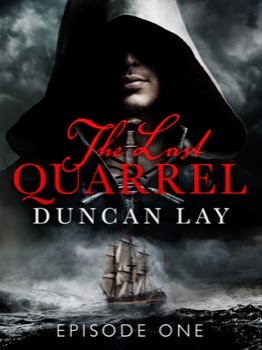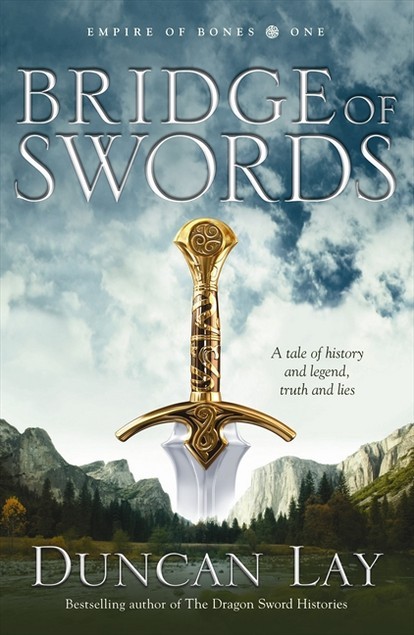The prince is dead.
Fooled by the treacherous King Aidan, Fallon has shot down the one man he trusted to save his beloved nation of Gaelland. And yet, when the King could grind Fallon underfoot, he draws the simple farmer and fighter closer, making a hero of him.
Embroiled in plots beyond his comprehension and weighted with the guilt of the prince's murder, Fallon must tread carefully if he is to accomplish the task that first brought him to the cursed capital: rescue his wife, Bridgit, and the rest of his village from Kottermani slavery. If he and his hopelessly ensnared men can survive, they may yet find redemption.
Meanwhile, across the ocean, Bridgit is rallying those around her to spring an escape. But who can be trusted? The ever-present danger of traitors and liars among the slaves, and even among her fellow Gaelish, is poison to her plans.
With an ocean between them and fouler nightmares looming, Fallon and Bridgit will be driven to their very limits to escape their prisons, find each other, and bring justice to Gaelland.
Somewhat unusually for my recent reading habits, I took a long time to read this book. (Goodreads tells me it was just under seven weeks, wow.) This is mainly because of other things going on in my life at the time, and also because, well, the book is kinda long. I didn't put it down because I was bored or annoyed at it, more because I needed something else — mostly something happier — in my life at the time. The Poisoned Quarrel is not a cheerful book, by and large. That's not to say that nothing good happens, but the overwhelming theme of the story is betrayal.
I'm sure I've said before that one of the themes Lay tackles well and consistently in his book is father-child relationships. This was true in the first book of this trilogy as well, but seems to be a bit less prominent in the second book. Fallon still has a relationship with his son who is around for a lot of the book, but that relationship is a bit less central that it was in the previous book. Mostly, I'd say, because the father and son settled into a rhythm and roles that weren't overly disrupted by the plot. I suspect there will be some more disruptions in book three.
The Poisoned Quarrel was also fairly gory, not that that's new for Lay. But right from where it picked up after the cliffhanger at the end of book one, there was a lot of opportunity for violence and descriptions of said violence. It was all relevant to the plot but if you don't want to read about people's head's being caved in (to give a mild example), well, you've been warned. (Minimal sexual violence, though.)
I especially enjoyed watching Bridgit develop as a person while enslaved by the Kottermanis. Since the characters around Fallon were mostly male, with only a few relevant exceptions, it was nice to have the second storyline following a set of characters that were mostly female. That they kicked arse was also a bonus.
I am definitely going to read the last book in this trilogy (The Poisoned Quarrel, already out), but after a short break from epic fantasy. I definitely recommend this book to anyone who's read the first book. And how could you not want to read it after the cliffhanger book 1 left us on? On the other hand, if you hate cliffhangers, this didn't actually have one (I'm as shocked as you are). Most plot elements are left unresolved, but no one is in the middle of being shot of hearing a deeply significant reveal, to pick two examples at random. If you haven't read any Duncan Lay before, then a) I recommend his books if you like epic fantasy, father-child relationships and apparently grimdark (although I wouldn't've called his other books that) and b) definitely start with book one.
4 / 5 stars
First published: February 2016, Momentum
Series: The Alabaster Trilogy book 2 of 3
Format read: eARC
Source: publisher









 Bridge of Swords is the first book in Duncan Lay’s second trilogy, Empire of Bones. It is set about three hundred years after the Dragon Sword Histories (The Wounded Guardian, The Radiant Child and The Risen Queen), however you definitely need not have read the first series for this one to make sense. Given the large time gap, there are no common characters and in the interim the face of the world has changed significantly so that even those who have read the first series will find it relatively unfamiliar at the start.
Bridge of Swords is the first book in Duncan Lay’s second trilogy, Empire of Bones. It is set about three hundred years after the Dragon Sword Histories (The Wounded Guardian, The Radiant Child and The Risen Queen), however you definitely need not have read the first series for this one to make sense. Given the large time gap, there are no common characters and in the interim the face of the world has changed significantly so that even those who have read the first series will find it relatively unfamiliar at the start.